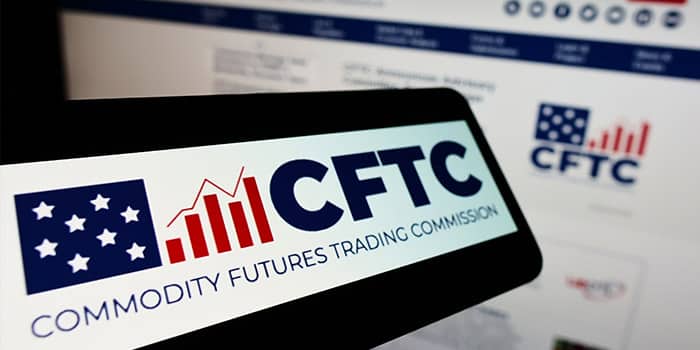- Casino
- By State
- Alabama
- Alaska
- Arizona
- Arkansas
- California
- Colorado
- Connecticut
- Delaware
- Georgia
- Florida
- Hawaii
- Idaho
- Illinois
- Indiana
- Iowa
- Kansas
- Kentucky
- Louisiana
- Maine
- Massachusetts
- Maryland
- Michigan
- Minnesota
- Mississippi
- Missouri
- Montana
- Nebraska
- Nevada
- New Hampshire
- New Jersey
- New Mexico
- New York
- North Carolina
- North Dakota
- Ohio
- Oklahoma
- Oregon
- Pennsylvania
- Rhode Island
- South Carolina
- South Dakota
- Tennessee
- Texas
- Utah
- Vermont
- Virginia
- Washington
- West Virginia
- Wisconsin
- Wyoming
- By State
- Slots
- Poker
- Sports
- Esports
SEC Probes Stockbroker and Friend for Insider Trading, Files Charges
The charges filed by the SEC claim Steven Teixeira and Jordan Meadow accessed nonpublic information and allegedly used it to gain profits

An ongoing investigation by the Securities and Exchange Commission (SEC), in collaboration with other agencies resulted in the filing of charges against two individuals over insider trading. The SEC has announced that it filed charges against the chief compliance officer of an international payment processing company, Steven Teixeira, as well as Jordan Meadow, who is registered as a representative of a New York-based broker-dealer.
The new complaint claims that the duo had access to nonpublic information. Allegedly, they used the information, which was related to acquisitions of public companies, allowing them to generate illicit profits.
According to the SEC’s complaint, Teixeira was able to obtain nonpublic information from his girlfriend’s laptop. This happened at a time when she was working from home due to the global COVID-19 pandemic. His girlfriend, who was employed by a leading New York-based investment bank, had access to nonpublic information regarding possible acquisitions and mergers of public companies.
The aforementioned complaint by SEC was filed in Manhattan’s federal court and it charges Meadow, a New Jersey resident and Teixeira, a New York Resident, with violations related to the Securities Exchange Act’s provisions about antifraud. In particular, the complaint charges the duo with violating “the antifraud provisions of Section 10(b) of the Securities Exchange Act of 1934 and Rule 10b-5.” The SEC said that it “seeks permanent injunctive relief, disgorgement with prejudgment interest, civil penalties, and bars on Meadow and Teixeira serving as officers or directors of public companies.”
Insider Trading Results in Illicit Profits, Claims SEC
Judging by the complaint filed against Teixeira, he allegedly was able to leverage insider trading information to “purchase call options on several issuers ahead of the announcement of the deals.” Moreover, the SEC claims, he allegedly provided the nonpublic information to his friends, Meadow including, enabling them to leverage it as well.
Allegedly, the scheme resulted in illicit profits for Teixeira of some $28,600. On the other hand, Meadow is claimed to have made more than $730,000 in illicit profits. The complaint also claims that Meadow disseminated the information to his brokerage customers, which in turn, resulted in millions of dollars in illicit profits. He allegedly benefitted from the deals by taking commissions.
An investigation into the insider trading scheme is still ongoing. It’s important to mention that both Meadow and Teixeira remain innocent until proven guilty beyond a reasonable doubt.
Jerome brings a wealth of journalistic experience within the iGaming sector. His interest in the industry began after graduating from college, where he regularly participated in local poker tournaments. This exposure led him to the growing popularity of online poker and casino rooms. Jerome now channels all the knowledge he's accrued to fuel his passion for journalism, providing our team with the latest scoops online.
Must Read
More Articles




Casino
April 18, 2025
Florida HB Seeking to Upgrade Illegal Gambling Punishments

Legal
April 17, 2025
Appeal to Keep Evolution’s Accuser Anonymous Denied

Lottery
April 17, 2025
CTLC Says Its Members Didn’t Violate the Texas Law














